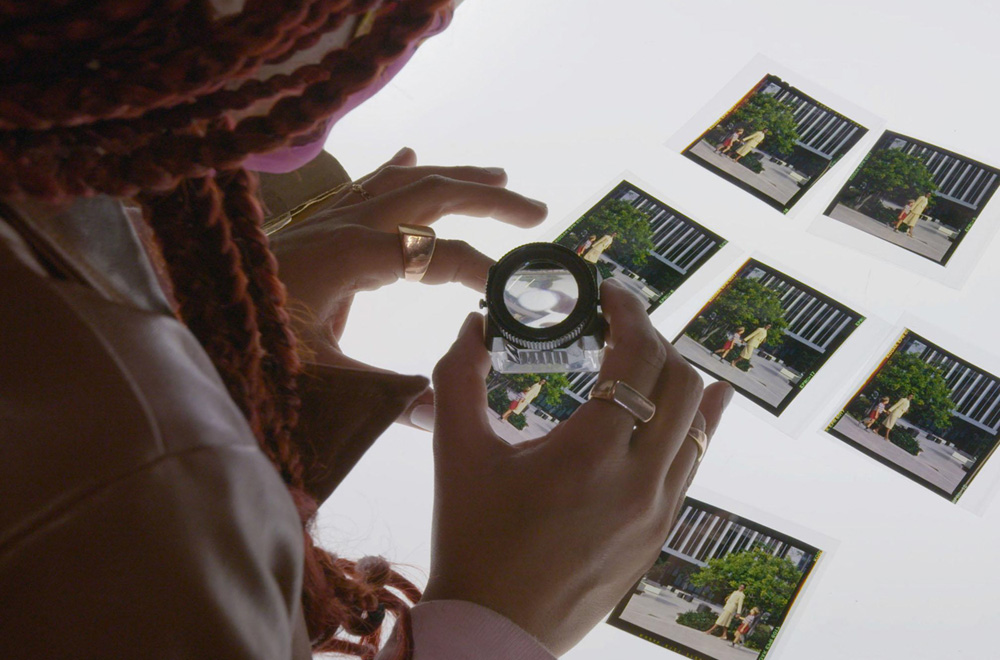It gradually becomes obvious in “Seeking Mavis Beacon” that director Jazmin Jones and her co-conspirator Olivia McKayla Ross are on less of a search than paving the way when trying to down Renée L’Espérance, the model who graced the cover of the super-popular “Mavis Beacon Teaches Typing” software that flooded CompUSA shelves in the late 1980s and early 1990s. The game itself, which could be addicting in training kids to speed up their typing skills, is a cherished relic for the first majority computer-literate generations, but for Jones and McKayla Ross, the presence of a Black woman fronting a technological endeavor of any kind in a space typically held for whites was mind-blowing.
The same could be said of the documentary world, which is why “Seeking Mavis Beacon” is a revelatory jolt to the system as Jones and McKayla Ross go on one of the most circuitous journeys since Ross McElwee’s landmark “Sherman’s March,” where the destination was nowhere near as interesting as getting there, but unlike that film, stay the course when the filmmakers carve out a place for themselves in the imagination of so many creative people as L’Espérance once did as Beacon. Although her image was legion when the game selling millions of copies, Jones and McKayla Ross find only breadcrumbs when trying to track the Haitian-born beauty down, coming to believe she was discovered by the game’s developers when working behind the counter of Saks Fifth Avenue and vanishing when her image was misappropriated according to the terms of her contract, leading to a lawsuit and little trace left of her either in public or on the internet. The filmmakers set up a production office to track down her whereabouts, but they only do so much detective work in the space where they put up a neon “open” sign and an aquarium to brighten up the dank room and occasionally fiddle around with a harp, and flamboyant scenes unapologetically devoted to braiding hair and champagne brunches have a cumulative value as the film wants one to know it’s told from a perspective that too few others are.
Jones is genuinely invested in finding L’Espérance, occasionally brought to tears by dead ends. However, “Seeking Mavis Beacon” ends up being about a lot more as she and McKayla Ross assert themselves and learn that in anonymity, perhaps finally their subject is too. They interview the makers of the game who can pat themselves on the back for a savvy bit of forward thinking in pairing the image of a Black woman with the promise of learning their way around a burgeoning technology, but parlayed their profits from the game into shaping the online culture we have today that’s in their image rather than of L’Espérance. While the mystery of what happened to her is tantalizing, the number of Black female experts who speak to turning points in tech, not the least of which is McKayla Ross who famously became a renowned coder as an eighth grader in Queens, is equally provocative when one has to wonder how often they’re asked for their wisdom and as the film will occasionally flood the screen with memes and text messages as a modern lingua franca, there is the nagging concern that technological advances will only continue to privilege old power when no other voices are typically welcome at the table.
“Seeking Mavis Beacon” is too bold to ask for permission and although Jones and McKayla Ross are respectful of L’Espérance’s privacy as they get closer and closer to learning her whereabouts, they bust down a number of other doors in terms of thinking about the future. Ideas have a way of being discarded almost as immediately as they’re introduced in the zippy production, but in considering the slipperiness of history and identity in the Internet age, that seems about right and the film gets at the heart of something as enigmatic as L’Espérance to at least offer a starting place for conversation. As frustrated as Jones and McKayla Ross might be to find that is a one-way street with their subject, the two show how much is gained by opening things up.
“Seeking Mavis Beacon” will be released by Neon.




